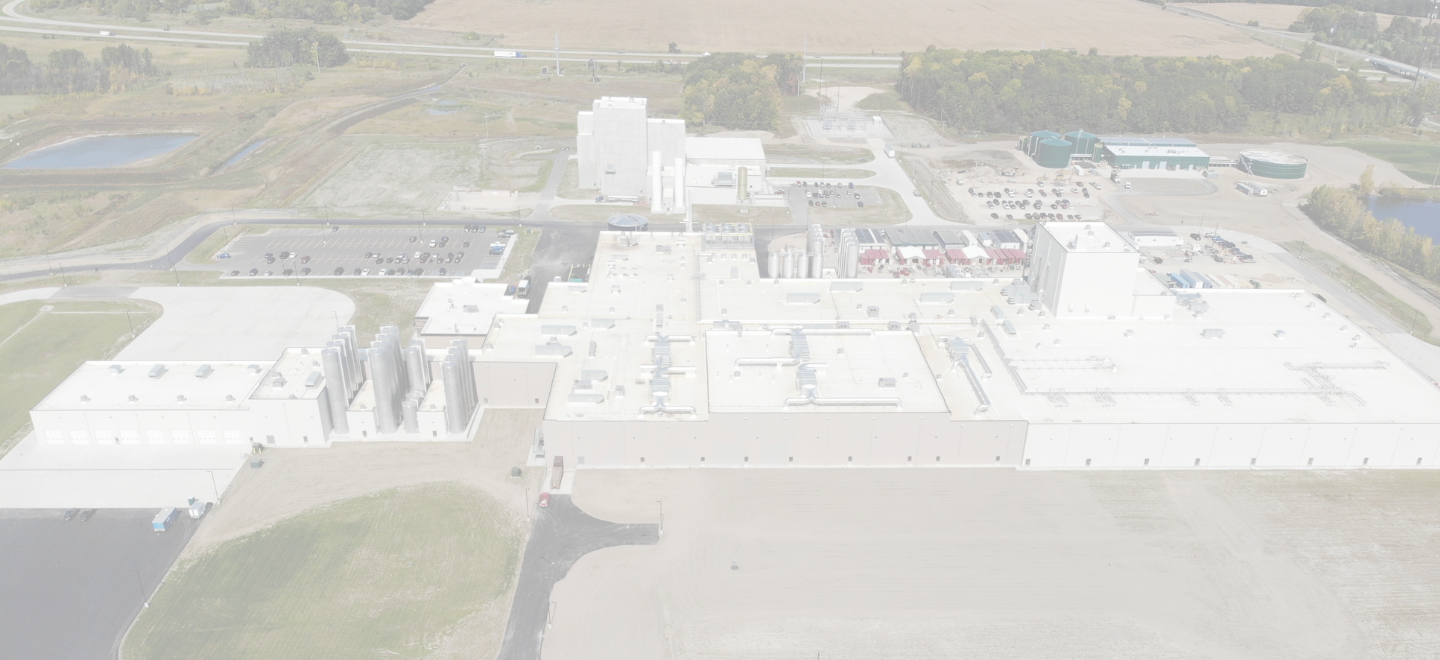At Glanbia, water stewardship is one of the key pillars of our Pure Food + Pure Planet strategy aligned with our commitment to the UN Sustainable Development Goals. Our strategy is built on the goals of optimising our freshwater consumption, maximising the re-use of water and water polishing at our sites, as well as treating waste water as efficiently as possible.
Water polishing is a key technology for dairy sites, as it enables our plants to effectively recover process water from raw milk - creating a plant self-sufficient in water and saving valuable natural resources, as well as reducing the load on wastewater treatment.
Our new MWC cheese and whey processing facility in St. Johns, Michigan was engineered and built to contribute significantly to our commitments around carbon, water, and waste reduction.
Reverse osmosis and polisher equipment generates 800,000 gallons of clean water each day from the milk processed in making cheese at the site. Instrumentation is used to recover clean flush water for all equipment rinses, minimising water down the drain and re-using the water as many times as possible. Over 90% of water is reused at the site.
The on-site wastewater treatment plant currently processes 1.5 million gallons of water a day, which is treated to high enough standards to be discharged to the Great Lakes.
MWC is a net generator of water since it discharges more than it pulls from the city. The state-of-the-art wastewater treatment plant includes anaerobic digestion to generate biomethane, creating renewable energy from waste to help fuel plant operations.
We plan to replicate and enhance the practices and learnings from Michigan at our other sites in the future, helping Glanbia to become water positive and play our part in addressing water sustainability challenges.
